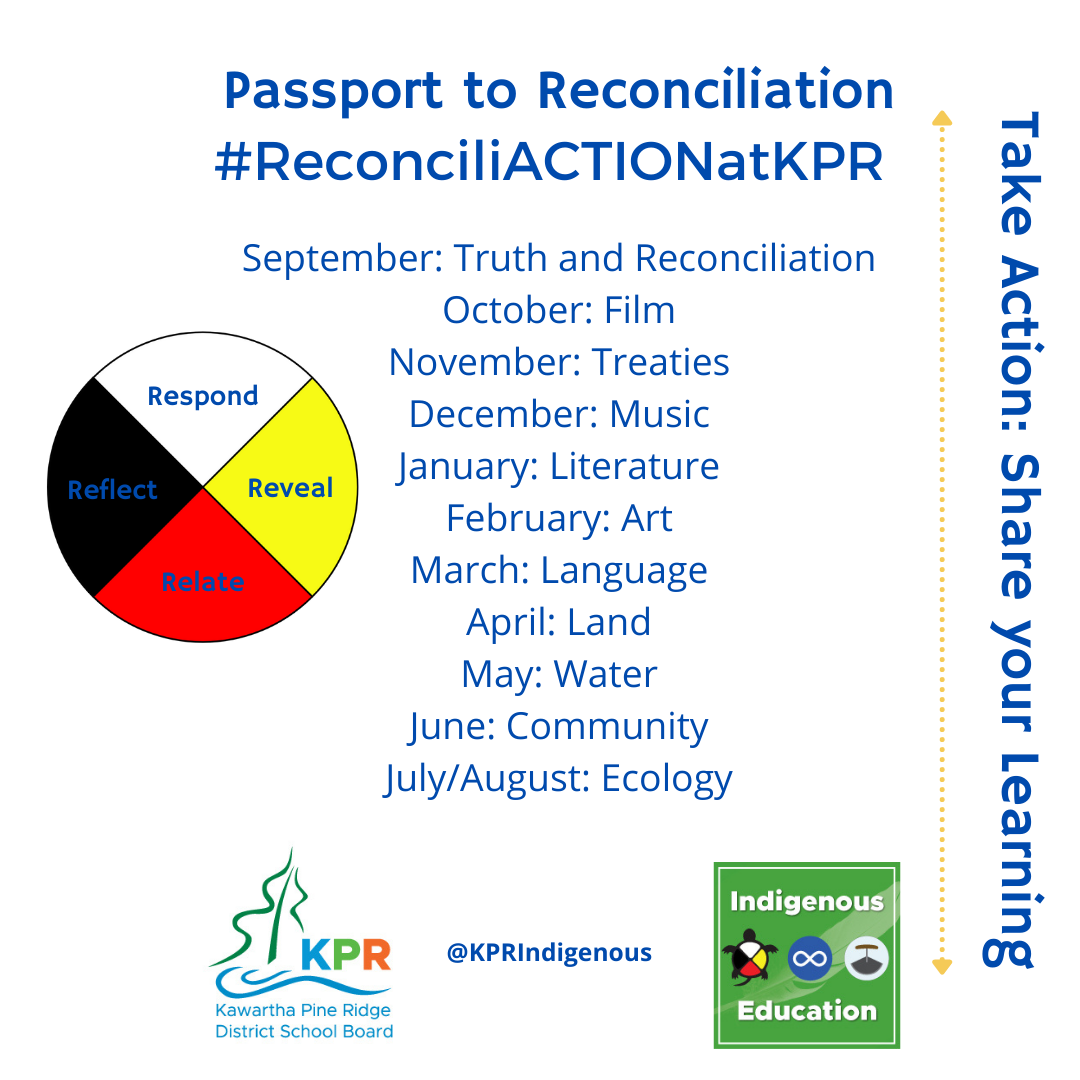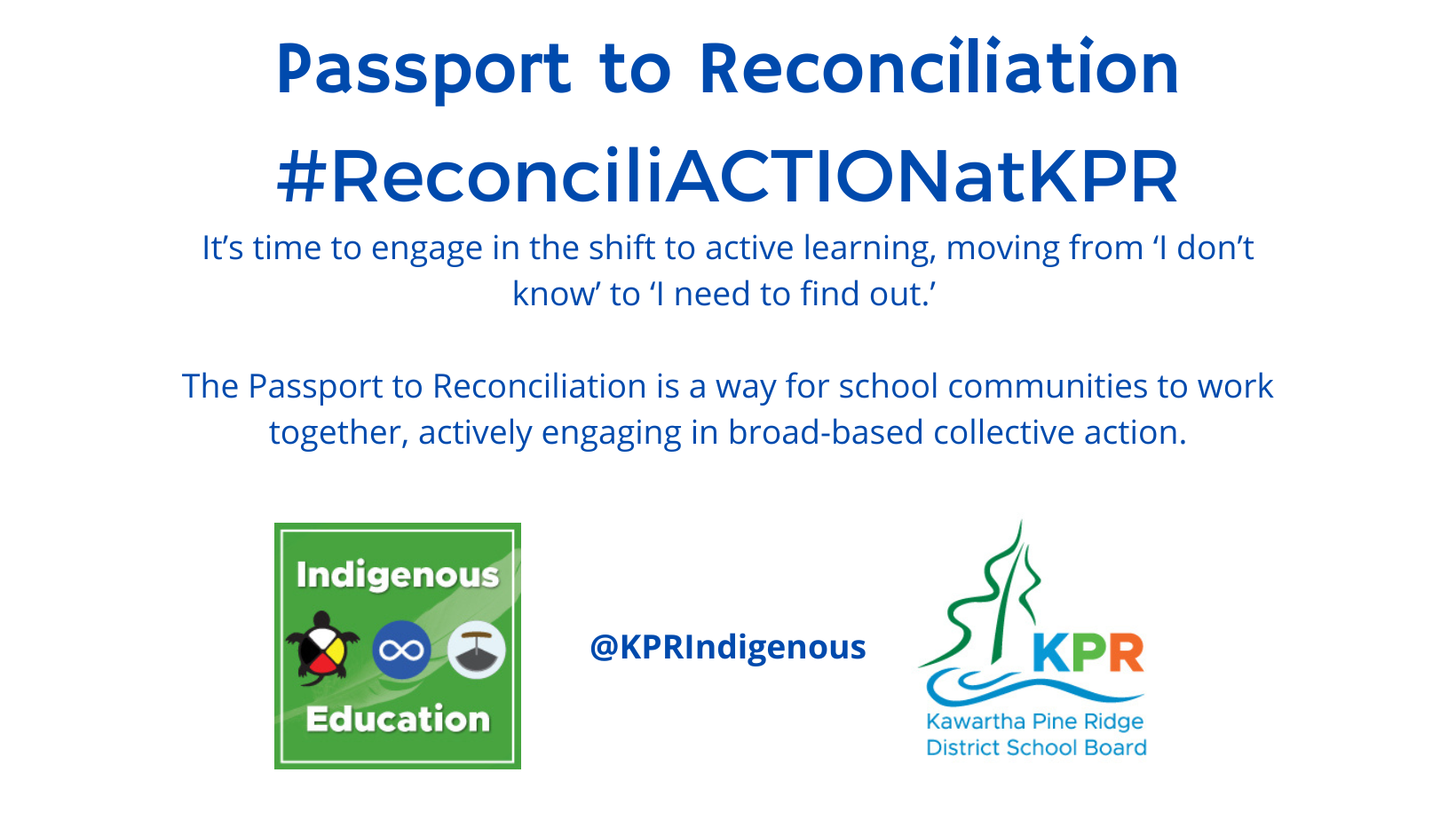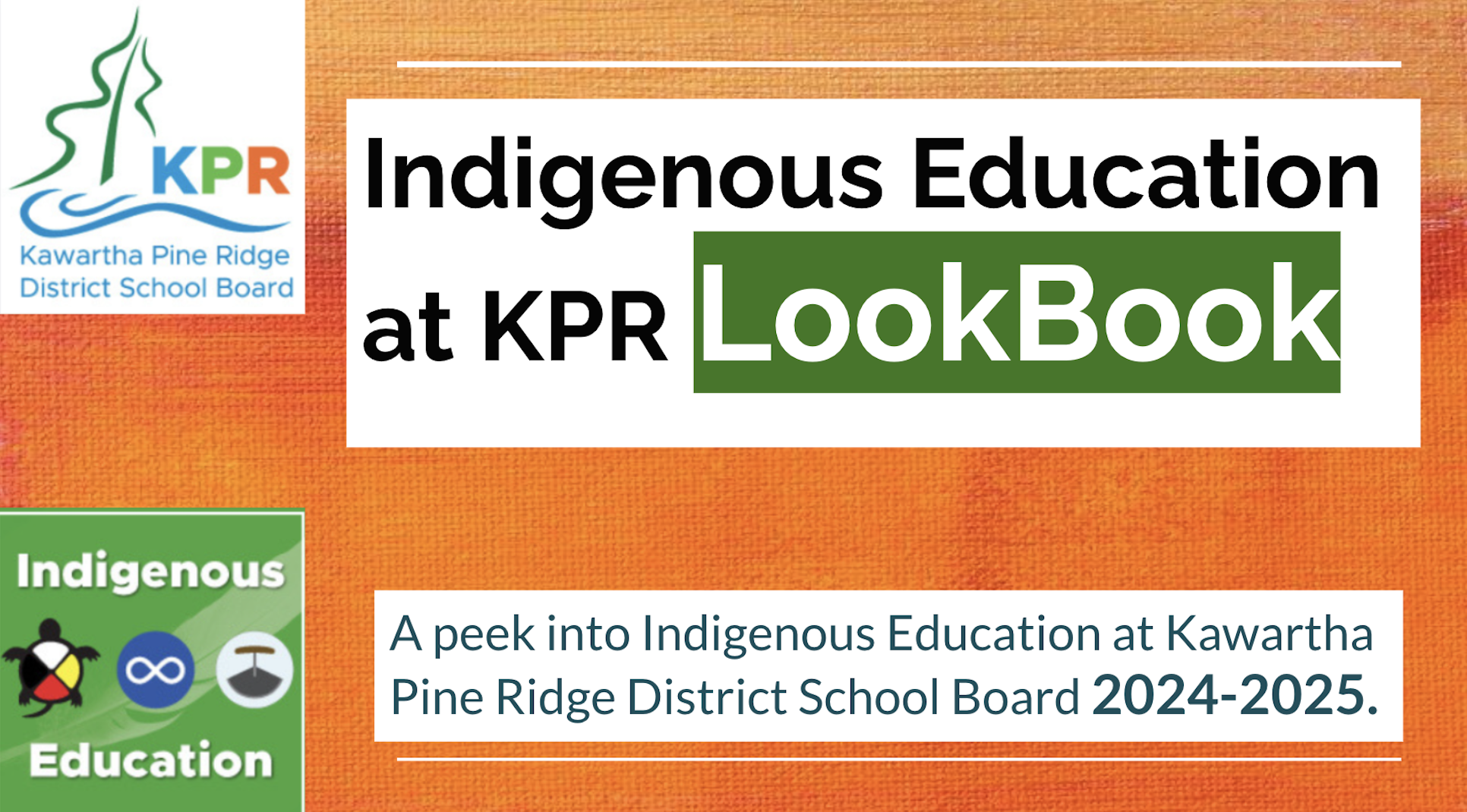- Make age-appropriate curriculum on residential schools, Treaties, and Aboriginal peoples' historical and contemporary contributions to Canada a mandatory education requirement for Kindergarten to Grade Twelve students.
- Provide the necessary funding to post-secondary institutions to educate teachers on how to integrate Indigenous knowledge and teaching methods into classrooms.
- Provide the necessary funding to Aboriginal schools to utilize Indigenous knowledge and teaching methods in classrooms.
- Establish senior-level positions in government at the assistant deputy minister level or higher dedicated to Aboriginal content in education.
Passport to Reconciliation
What is the Passport to Reconciliation?
In November 2021 we launched a year of learning: The Passport to Reconciliation. Each month we share a different learning focus. Learning is action and everyone in KPR has a role to play in Reconciliation.

Who can participate in the learning?
- Individual staff
- Classrooms
- Whole School
- Departments in a School or at the Board Office
Why is this important?
- Truth and Reconciliation Commission Calls to Action (Education) 62-65
- National Day for Truth and Reconciliation
- Reconciliation: What Does it Mean?
- Bring reconciliation in the classroom
Where do we start?
- You can begin with this month's focus.
- You can go back and do any learning you missed in any month.
- This learning can happen online or in person. Everything you need to begin is provided.
Why do we need to share our learning?
We are taking action by sharing our learning and its impact. It is a way to pledge our commitment and to make the learning visible.
This year we are learning as action. #ReconciliACTIONatKPR

There are staff and students in schools and departments across the system choosing to engage in important learning through the Passport to Reconciliation.
Our goal is to have every school and every department engaged in learning as action through the Passport to Reconciliation.
KPR Indigenous Education LookBook 2024-2025
The KPR Indigenous Education LookBook celebrates learning happening across the system in Indigenous Education. Take a peek into some of the work since September 2024. Make sure to check in seasonally as more system learning is added throughout the year.
Click to view: Indigenous Education at KPR LookBook 2024-2025

Education for Reconciliation: The Truth and Reconciliation Commission's Calls to Action
- Developing and implementing Kindergarten to Grade Twelve curriculum and learning resources on Aboriginal peoples in Canadian history, and the history and legacy of residential schools.
- Sharing information and best practices on teaching curriculum related to residential schools and Aboriginal history.
- Building student capacity for intercultural understanding, empathy, and mutual respect.
- Identifying teacher-training needs relating to the above.
Read all the Calls to Action and learn more in the Truth and Reconciliation Commission of Canada: Calls to Action report.
Contact Us
Colleen Honey
Executive Assistant to Superintendent of Education: Student Achievement, Indigenous Education
Kawartha Pine Ridge District School Board
1994 Fisher Drive
Peterborough, ON K9J 6X6
Phone: 705-742-9773 x2602
Toll-Free: 1-877-741-4577
Send email to Colleen Honey
James Brake
Superintendent of Education: Student Achievement, Indigenous Education
Kawartha Pine Ridge District School Board
1994 Fisher Drive
Peterborough, ON K9J 6X6
Phone: 705-742-9773 x2602
Toll-Free: 1-877-741-4577
Send email to Superintendent of Education
